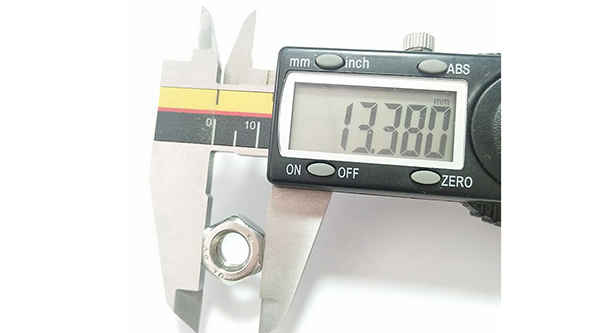What is the tolerance range of precision screws?
What is the tolerance range of precision screws?
Service Hotline
+86760-8787 8587We have more than ten years of production experience in the screw industry, the main products are: 304 core-pulling copper rivets, copper column security copper studs, small yellow croaker expansion screws, eccentric screw nuts, flat head cylinder head screws, three combination screws, national standard shrapnel nuts , Large flat head socket head cap bolts, through-hole thumb nuts, separate combination bolts, bridge rack screws, gypsum board expansion screws, oxidation black high-strength hexagon nuts, galvanized nylon flange nuts, carbon steel blackened gaskets, etc. Due to the different materials and specifications of the products, the prices are also different, if necessary, please contact us.


Heat treatment technology has a crucial impact on high-strength fasteners, especially its intrinsic quality. Therefore, in order to produce high-quality high-strength fasteners, advanced heat treatment technology and equipment must be available. 1. Status of heat treatment of high-strength fasteners High-strength fasteners have 4 performance levels, namely 8.8, 9.8, 10.9, and 12.9. These four grades of high-strength fasteners must be quenched and tempered. The purpose of heat treatment and tempering is to improve the comprehensive mechanical properties of fasteners to meet the specified tensile strength value and yield ratio of the product. Therefore, the quenching and tempering process has strict requirements on raw materials, furnace temperature control, furnace atmosphere control, quenching medium, heat treatment quality inspection and control, etc.

The general nut will loosen itself due to vibration and other reasons during use. In order to prevent this phenomenon, the self-locking nut was invented. The main functions of self-locking nuts are anti-loose and anti-vibration. For special occasions. Its working principle is generally self-locking by friction. The types of self-locking nuts classified by function include those with nylon rings, those with neck closures, and those with metal anti-loosening devices. They are all effective torque type lock nuts (refer to GB/T3098.9-2002 national standard)


The pressure riveting nut is divided into free-cutting steel pressure riveting nut S type, stainless steel pressure riveting nut type CLS, stainless iron pressure riveting nut SP type and copper and aluminum pressure riveting nut CLA type, which should be used in different environments. . Sizes are usually from M2 to M12. There is no unified national standard for rivet nuts, and they are often used in chassis cabinets and sheet metal industries. S series, CLS series, SP series pressure riveting nuts use the internal thread as a simple method to install in precision sheet metal products, and use small and precise nuts for reliable fixing to completely process the side plate of the sheet metal. The nut is inserted into the hole of the metal plate, and the inlay strengthening function is completed by pressure. Application advantages 1. The back of the plate remains completely flat; 2. Small size and precision, suitable for all electronic or precision equipment; 3. High torque resistance; 4. Easy equipment, simple riveting; 5. Standardized serialization can meet various design requirements .

1. Material strain hardening When the material is cyclically loaded, the phenomenon of cyclic strain hardening or cyclic strain softening will occur, that is, under the condition of constant cyclic strain, the stress amplitude will increase or decrease with the increase of the number of cycles. . After several cycles, the stress amplitude enters a cyclic steady state. The low-cycle fatigue of the lock nut is carried out under the condition that the strain is constant, and the strain hardening or softening of the threaded piece will affect the size of its maximum unscrewing torque. The alloy steel used to make the lock nut is a cyclic strain hardening material, and the hardening of the material will increase the elastic restoring force FN of the threaded sheet and increase the unscrewing torque.

The above content is uploaded by Yueluo or the Internet. If there is any copyright issue, please contact [email protected].

What is the tolerance range of precision screws?

How to choose the right stainless steel screw manufacturer?

Why is there an R angle under the head of the hexagon head s...

We have more than ten years of production experience in the ...

We have more than ten years of experience in the production ...

We have more than ten years of experience in the production ...

We have more than ten years of experience in screw industry ...